50CD - Martin Archer & Engine Room Favourites - Bad Tidings From Slackwater Drag - CD plus download
TweetListen

Second CD by Archer's AACM flavoured collective documents the material developed for performance during the band's 2015 concerts across the UK. From pure abstraction to the Hard Blues, ERFaves puts down some deep music on this release.
Martin Archer - sopranino, alto & baritone saxophones, bass recorder
Mick Beck - tenor saxophone, bassoon
Laura Cole - piano
Corey Mwamba - vibraphone
Graham Clark - violin
Seth Bennett - bass
Peter Fairclough - percussion
Walt Shaw - percussion
Johnny Hunter - percussion
Steve Dinsdale - percussion
A band of band leaders, comprising some of the most creative new voices on the scene plus some maverick veterans. You decide who is which. A front line which is as sophisticated as it is rough edged. Complex interplay from piano and vibes flanking them from either side of the stage. And a rhythm powerhouse of four percussionists, collectively able to move from the most delicate and unexpected little instrument textures through to a barely containable percussive storm.
The band aesthetic remains true to Archer's earliest experience in creative music, as a follower of the AACM school of music pioneered by Art Ensemble of Chicago, Leo Smith, and Anthony Braxton. This is a style which has never been really followed up by European musicians, nevertheless it remains the model for Archer's contributions to jazz based music. Archer has said "the appeal of this style to me is that it remains considered, spacious and open, without sacrificing any of the improvisational heat and energy which places its exponent players firmly in the avantgarde tradition. And crucially, it never disconnects from its own past, in particular the blues, no matter how abstract it gets. It's that very mix of pure abstraction with the directness and energy of the sound that I continue to find so compelling in this music.".
Engine Room Favourites are not postmodernists, not retro stylists, but instead keep their eyes and ears firmly on a forward path jazz might have taken in the next period, but never quite did.
The great Martin Archer released Blue Meat, Black Diesel & Engine Room Favourites in 2013, a terrific album reckoned by Steve Pescott to be a “deep dive into the world of the AACM-influenced, multi-directional jazz blowout”. This trend continues with a seemingly unstoppable flow of energy on Bad Tidings From Slackwater Drag (DISCUS 50CD), which offers an entire double CD set of such music, and Archer is now so assured of his theme that he recycles the name – and credits the work to Martin Archer & Engine Room Favourites. The huge-scaled ambitious sound of this album is what first grabs the listener, after which one reads the printed credits and does a double-take to find that only 11 musicians are making this sweeping, grandiose, orchestral noise. Robin Downe is the technician credited with capturing the superb sound from this live recording, although Archer added some overdubs in his studio; long-time collaborator Hervé Perez is co-producer, and did the mastering. On today’s spin, I am convinced I am personally fed up with minimal and inaudible improv, no matter how advanced or modern it may be; maximal, juicy, skillful playing is the way for me.
Archer admits the strongest influence on this avant big-band jazz project is his personal love of the Chicago school called The Association for the Advancement of Creative Musicians, and he singles out the music of Art Ensemble of Chicago, Leo Smith and Anthony Braxton (we could also have included Leroy Jenkins, Henry Threadgill, Jack DeJohnette and many others). Specifically, he likes the deep blues roots which fuelled many of the players’ exploits in Chicago, even when the music became incredibly far-out and abstract. Improvisation remained at the core, and Archer loves the possibilities offered by the “considered, spacious and open” nature of your basic AACM framework. It’s worth remembering that AACM musicians exerted themselves and found their own way out of several free jazz dead-ends, for instance by the practice of blending “music, geometry, painting, and ciphers” (according to Wikipedia) in their works. If Archer is claiming AACM as somehow overlooked or under-valued heroes in the culture and history of free improvisation, I’m 100% on his side.
As to the music on Bad Tidings, the team of Archer, Mick Beck, Graham Clark, Laura Cole, Corey Mwamba, and Seth Bennett create astonishing abstract-art canvasses of rich music, on a bed of percussive effects and exciting cross-rhythms supplied by the team of of Peter Fairclough, Walt Shaw, Johnny Hunter and Steve Dinsdale. Yes, you heard right…four drummers / percussionists…only by thinking on the scale of a contemporary Hollywood soundtrack composer can Archer realise his ambitions, and propel his music into the freedom of the open skies. In terms of drummer head-counts, he’s even gone one better than the Bitches Brew sessions. When it lifts off, the music here just floats; yet it also creates the impression of a huge Noah’s Ark filled with living creatures, teeming with energy. Did I use the word maximal yet? See above. Today’s sentiment still applies.
Stylistically, listeners will in places be reminded of Alice Coltrane’s fabulous orchestral works such as 1972’s World Galaxy, an influence to which Archer freely owns in the title to the first track ‘Song For Alice Coltrane’. The first disc alternates rich, melodic, uplifting and complex interlocking improvisations that swing beautifully, with the slightly more dissonant and uncertain avant-garde explorations of abstract space, such as the album title track – a percussion-heavy journey into the improvisational heart of darkness, where lone instruments like saxophone or violin are left to issue their lonely plaints against very spartan backdrops of abstract noise. On the second disc, the album-length ‘You Will Never Know Me’ (36 minutes!) expands into a showcase for everything this exceptional combo are capable of playing, moving from quiet, posed dynamics, to loud free-for-all blasts; the whole pathway explored with assurance and vigour and a confident swagger, with no apparent conductor in sight.
The compositions are credited to all the players; their teamwork, rapport and telepathy must guide the shape of each piece. Frank Zappa (whose music some of this material might be said to resemble) could only get to the same place by force of his own will, producing complex compositions in isolation, and then bullying the players into obedience through his narrow insistence on perfect sight-reading. The sheer social power of Martin Archer’s projects beats that hands down; Engine Room Favourites do it through friendship, collaboration, respect; ten seconds of their improvisation beats 20 minutes of post-serial composition; and the energy and warmth is passed directly into the music. The final track ‘The Hard Blues’ ends the release on a high note, paying tribute not to Chicago or the AACM, but to Texas-born Julius Hemphill who composed the original. (He did work with Braxton though, for trainspotters who want to keep the purity of the theme). Once again this is an exceptional piece of excellent British jazz / improvisation; it remains a mystery to me why Archer is not better known across the whole UK. From 23 February 2015. - ED PINSENT, Sound Projector
British multi-reedman Martin Archer is a cunning maverick who exploits the seemingly limitless expanse of progressive jazz, electronica and improvisation, evidenced by his hearty discography, performing as a solo artist or when collaborating with many of his peers. Moreover, this large ensemble's second album is influenced by the Chicago, IL based, Association for the Advancement of Creative Musicians (AACM), founded in 1965 by pianist, composer and supreme improviser,Muhal Richard Abrams.
AACM yielded modern era icons such as reedman Anthony Braxton, trumpeterWadada Leo Smith, the Art Ensemble of Chicago and other notables. Yet Archer raises a good point by stating, "The appeal of this style to me is that it remains considered, spacious and open, without sacrificing any of the improvisational heat and energy which places its exponent players firmly in the avant-garde tradition." Hence, the ensemble engages a cornucopia of motifs and stylizations, embedded within a sprawling improvisational quotient, inherently consistent within AACM's unbounded frameworks.
With frenetic sax soloing, angular strings motifs, and breakouts into sub-groups amid some good-natured mayhem, evidenced on "A1—Song for Alice Coltrane" and other tracks, they also incorporate subtle melodies into the mix. However, the musicians parallel AACM activities via a thirst for free-form adventurism, tinted with polytonal contrasts, partly due to the breadth of instrumentation the ensemble has to offer. They explore abstruse perspectives, crackling thematic incursions and a little horns initiated bump and grind movements, fast-tracked by passages where all hell breaks loose. But on "A5—Song for Mary Lou Williams, they execute a slowly paced blues groove, amped by Graham Clark's muscular and soaring violin solo and dappled by vibraphonist Corey Mwamba's sleek phrasings. Here and throughout, the band intersperses garrulous phrasings, augmented by Archer and Mick Beck's wily sax parts, occasionally leading to torrential downpours of sound. Indeed, it's a multidimensional program, evidenced by the Latin inspired modern jazz piece "Satin Lantern (Salsa Dura)," and other tracks spanning both discs.
The lengthiest piece "B1—You Will Never Know" skirts the minimalism realm with seamless journeys into parts unknown, featuring avant-chamber passages, subdued melodic content; moments of angst and sax-based plaintive cries that counteract the sinuously designed ebbs and flows. It's a rewarding aural experience proving once again that Archer and associates excel when thinking outside the box and by welcoming risk with open arms. - GLENN ASTARITA, ALL ABOUT JAZZ, (FOUR AND A HALF STARS)
Two discs of ambitious and diverse music, inspired by AACM and the notion of moving beyond abstraction by drawing on the whole history of jazz - without looking backwards. Sheffield's Martin Archer has spoken of his intention to keep the music "considered, spacious and open, without sacrificing any of the improvisational heat and energy which places its exponent players firmly in the avant-garde tradition". But he also says that the debt to the tradition of jazz and blues remains strong, even when the music reaches its most abstract. These tracks reveal his rejection of both postmodernism and retromania; instead he attempts to establish a sort of alternative history jazz could have taken from the 1980s. With a diverse line-up of superb musicians and musical reference points that are no less diverse (Archer is currently involved in everything from avant rock to experimental music choir and laptop jazz), this is vital, engaging stuff. - MARCUS O'DAIR, JAZZWISE, (FOUR STARS)
Everything is perfectly natural and unforced... Individual musicians fit together like cogs. Listening to this album is a real treat, evidenced not only by Archer's ingenious approach, but also by this cohort of musicians who are among the best in Europe. - PETR FERENC, HISVOICE
From the introductory tune - Song for Alice Coltrane - you know that you are in for a good ride. Tracks range from dense and frenetic to minimal improvised structures. At times, I was put in the mind of Soft Machine and also was reminded of Julius Hemphill's Big Band. The latter thought was confirmed as the concluding number of the set is a cover version of Hemphill's classic track The Hard Blues. And ERF do a most admirable job in their performance. - CHRIS MELOCHE - Wired For Sound
Archer scores a bullseye with this lovingly rendered tribute to the avant garde jazz pioneers of the 1960s / early 1970s. "Song For Alice Coltrane" sets forth like an expansive, spiritually minded outtake from "Ptah, The El Doud", before unravelling into an AACM style exploration of space and timbre, with multitudinous small percussion, Corey Mwamba's probing vibes and Graham Clark summoning Leroy Jenkins's nervy contributions to Anthony Braxton's "This Time"; while on the gleefully low-down "Song For Mary Lou Williams", Clark taps into the crawling blues riff Michael White provided for Joe Henderson's "Earth". In this context Archer takes the opportunity to remind us what an accomplished reedsman he is, delighting in the waspish hee-haw of his sopranino and spraying vinegary rasps from the alto sax. - DANIEL SPICER, THE WIRE
Dicht verwoben, natürlich gewachsen und verbunden, entspannt bis hektisch und sehr farbig, intensiv und virtuos vorgetragen kommt dieses Album aus den Boxen. - ACHIM BRIELING, BABYBLAUE SEITEN
Martin Archer is the chief engineer of Engine Room Favourites (Festival Pavilion). He cavorts about the place with a mischievous grin and orchestrates the mayhem by waving his arms. Everywhere there is a welter of taps, rustles, bangs, scrapes and whirrs (I was going to add bonks, forgetting my childhood lexicon of rude words) from the four-strong percussion team (including veteran drummer/composer Peter Fairclough). Sometimes, as in the opening piece, they pull off a user-friendly Coltrane: it’s Ascension without the tears, with Corey Mwamba bopping brightly on the bottles as Archer offers long legato phrases on the soprano saxophone, and Graham Clark (at the tip of the hat from Archer) responds with an extraordinarily lovely yet astringent fiddle solo.
Je ne saurais expliquer pourquoi l’introduction de "Song for Alice Coltrane" me fait immédiatement penser à "Rock Bottom" de Robert Wyatt… sans doute le sax. Troisième aspect de la musique de Martin Archer : on rentre là dans un cadre plus jazz avec des compositions fixant des règles plus conventionnelles, mais avec une part belle laissée à l’improvisation. Le fait qu’il s’agisse d’un concert n’est pas étranger à cette impression donnée par cette dizaine de musiciens parfaitement rodés. On remarquera avec plaisir la présence de Mick Beck au ténor, doublant le maitre de cérémonie, jouant de l’ensemble des autres saxophones et clarinettes, et le retour du violoniste Graham Clark, qui fut un temps membre de Gong, le groupe du défunt Daevid Allen. Rien moins que quatre percussionnistes sont présents pour donner une pulsation dynamique à cette musique qui, si elle n’est pas neuve, n’en est pour autant pas inintéressante de par la variété des thèmes. On reconnaitra même un morceau de Julius Hemphill, et l’on appréciera les 36 minutes de "You will never know me", avec son entrée en matière initiée par le vibraphone de Corey Mwamba et le sopranino d’Archer bousculé par le ténor de Beck, et sa lente construction qui se structure au fur et à mesure de l’arrivée des autres intervenants, notamment le violon langoureux de Clark ou le basson profond de Beck pour terminer en un feu d’artifice jouissif. En résumé, trois oeuvres aussi importantes les unes que les autres, dans trois domaines musicaux différents, dirigées par le saxophoniste de Sheffield, Martin Archer, un nom qui compte sérieusement dans l’évolution des musiques inclassables et immanquables d’Outre Manche. - PHILIPPE RENAUD IMPROJAZZ
Influenzato dallo stile improvvisativo della Association for the Advancement of Creative Musicians (AACM) di Chicago, che ha visto tra i suoi protagonisti artisti del calibro di Anthony Braxton e Wadada Leo Smith, questo lavoro documenta le performance offerte dalla superband guidata da Martin Archer nel tour britannico del 2014. L’album rivisita, alla luce della tradizione improvvisativa europea, generi e stili diversi, dalla salsa (dell’ultima traccia del primo disco Salsa Dura) al jazz di John Coltrane (come appare evidente – forse non a caso – almeno nell’incipit del primo brano,Song for Alice Coltrane, dedicato alla moglie dell’immenso sassofonista). In generale, il solido impianto orchestrale lascia spesso libertà ai solisti – tra gli altri il violino di Graham Clark, i sassofoni di Archer e Mick Beck, il vibrafono di Corey Mwamba – che espongono le loro ispirate improvvisazioni (agili fraseggi, scorribande aggressive in puro stile free, frammenti spezzati di dialogo e cascate di suono in vena più sperimentale) per giungere poi a crescendo di gruppo, e ritornare all’ensemble. Ai numerosi momenti di espressività musicale espansiva e robusta si sostituisce talvolta un tono più intimo e sommesso, come nella lunghissima (ma mai stancante) prima traccia del secondo disco, You Will Never Know Me che, dopo 36 minuti, lascia sfogare in The Hard Blueslo spirito blues che aleggia un po’ dappertutto tra le note di questo gran bel progetto. – KATHODIK
Influenced by improvisational style of the Association for the Advancement of Creative Musicians (AACM) in Chicago, which has seen among its protagonists artists such as Anthony Braxton, and Wadada Leo Smith, this work documents the performance offered by the superband led by Martin Archer British tour in 2014. The album revisits, in the light of European improvisation tradition, genres and styles, from salsa (the last track of the first disc hard sauce) to jazz by John Coltrane (as is evident – perhaps not surprisingly – at least in the beginning of the first track, "Song for Alice Coltrane, dedicated to the wife of saxophonist). In General, the solid orchestral system often leaves the soloist freedom – among others the violin of Graham Clark, saxophones and Mick Archer Beck, the vibraphone of Corey Mwamba –exposing their inspired improvisations (nimble riffs, aggressive raids in free style, broken fragments of dialogue and sound falls into more experimental vein) to reach a crescendo, group and return to the ensemble. The many moments of expansive, robust musical expression replaces a more intimate tone sometimes and subdued, as in the long (but never tiring) the first track of the second disc, You Will Never Know Me that after 36 minutes, giving vent in The Hard Blues low blues spirit that hovers everywhere between the notes of this great project. - KATHODIK
Prolific polymath Martin Archer (here with Engine Room Favourites) releases an album "Bad Tidings From Slackwater Drag" culled from 2014 live preparations, and this time it's in jazz and improv mode. Opening with the joyous (nearly anthemic) 'Song For Alice Coltrane,' it's full of sax solos from Archer and collaborator Mick Beck, with Laura Cole on piano and psych-scene violin regular Graham Clark also in attendance. Drums and percussion are provided by many, including RMI luminary Steve Dinsdale. 'New Intruder' opens light and thrilling, but follows Archer's declared path of, "pure abstraction with the directness and energy of the sound that I continue to find so compelling in this music." 'Downtown and Uptown' is a brief freeform interlude before the ten minute 'Song For Mary Lou Williams,' which has its roots in the blues, and in which Clark's violin (lovely opening solo) and Cole's piano set a nice foundation. As with all Discus releases, this is a double CD. The second disk mostly contains 'You Will Never Know Me,' which in places is pretty avant-garde, but which later on swings off into noisy twin sax solos, and an occasional full band crescendo. 'The Hard Blues' is the only non-band track, being written by Julius Hemphill. Essential for modern jazz aficionados, I would venture to suggest. - TERRASCOPE





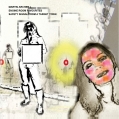 66CD - Martin Archer + Engine Room Favourites - Safety Signal From A Target Town - CD plus download
66CD - Martin Archer + Engine Room Favourites - Safety Signal From A Target Town - CD plus download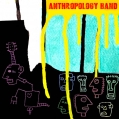 90CD - Martin Archer - Anthropology Band - CD plus download
90CD - Martin Archer - Anthropology Band - CD plus download 59CD - Archer / Mwamba / Bennett / Fairclough - Sunshine! Quartet - CD plus download
59CD - Archer / Mwamba / Bennett / Fairclough - Sunshine! Quartet - CD plus download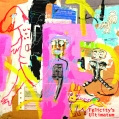 60CD - Archer / Clark / Grew / Hunter - Felicity's Ultimatum - CD plus download
60CD - Archer / Clark / Grew / Hunter - Felicity's Ultimatum - CD plus download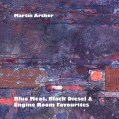 43CD - Martin Archer - Blue Meat, Black Diesel & Engine Room Favourites - CD plus download
43CD - Martin Archer - Blue Meat, Black Diesel & Engine Room Favourites - CD plus download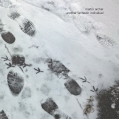 80CD - Martin Archer - Another Fantastic Individual - CD plus download
80CD - Martin Archer - Another Fantastic Individual - CD plus download